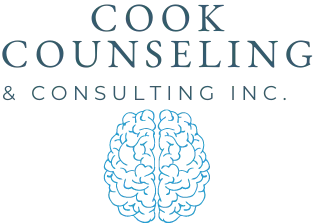Emotionally immature parenting is a parenting style characterized by a lack of emotional awareness, responsiveness, and maturity. Emotionally immature parents may struggle to regulate their own emotions and respond inappropriately to their children’s emotional needs. They may be insensitive, critical, or dismissive of their children’s feelings and may not provide the emotional support and validation that children need to thrive.
How To Identify Emotionally Immature Parenting Style?
Some common traits of emotionally immature parenting include:
Lacking Empathy
Emotionally immature parents may struggle to empathize with their children’s emotions and may not be able to put themselves in their children’s shoes.
Poor Emotional Regulation
Such parents may have difficulty regulating their own emotions, which can lead to outbursts or emotional instability.
Self-centeredness
They may prioritize their own needs and desires over their children’s and may not consider how their actions impact their children.
Inconsistent Parenting
Such parents may have difficulty setting and enforcing boundaries or rules and may have inconsistent responses to their children’s behavior.
Difficulty with Intimacy
They may struggle with intimacy and may not be able to form close, supportive relationships with their children.
The Impact of Emotionally Immature Parenting
Emotionally immature parenting can have a significant impact on a child’s development and well-being. Here are some ways in which such kind of parenting can affect children:
Insecurity
Children of such parents may feel insecure and uncertain about their worth and abilities. These children might struggle with self-esteem issues and have difficulty developing a strong sense of identity.
Attachment Issues
Parents may struggle to form strong attachments with their children, which can result in attachment issues for the child. Children may have difficulty forming close relationships with others and may struggle with trust and intimacy.
Difficulty Regulating Emotions
Children may have difficulty regulating their emotions. They may struggle with anger, anxiety, and depression and may not have the skills to cope with their emotions in a healthy way.
Poor Social Skills
Emotionally immature parents may not model healthy social skills, which can result in children who struggle with social interactions and anxiety. Children may have difficulty making friends, communicating effectively, and navigating social situations.
Self-blame
Children of emotionally immature parents may blame themselves for their parents’ emotional shortcomings. They may feel responsible for their parent’s moods and behavior and may struggle with feelings of guilt and shame.
Wrapping It Up
In a nutshell, emotionally immature parenting can have a long-lasting impact on a child’s emotional and social development. Children of such parents may struggle with insecurity, attachment issues, emotional regulation, social skills, and self-blame. It’s important for parents to work on their emotional maturity and seek help if needed to provide a healthy and supportive environment for their children.
References
Gibson, L.C. (2015). Adult children of emotionally immature parents: How to heal from distant, rejecting, or self-involved parents. Oakland: New Harbinger. Tanasugarn, A. (2022) How emotionally immature parenting affects our adult lives, Psychology Today. Sussex Publishers. Available at: https://www.psychologytoday.com/us/blog/understanding-ptsd/202211/how-emotionally-immature-parenting-affects-our-adult-lives.

